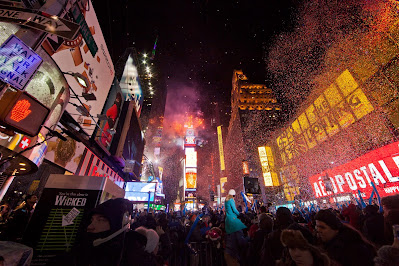Welcome to my latest blog post. This week I will continue in the festive spirit and focus on the history of New Year celebrations. For once I couldn’t find anything disability related, so you will have to come back next week for some disability action.
How Old are New Year Celebrations?
The concept of a new year always puzzles me. I mean, it’s not like there is any difference in the world on 1st January compared to 31st December. You may be surprised to learn that the New Year has been celebrated for almost as long as civilisation has existed. There are recorded celebrations of the New Year in ancient Babylon 4,000 years ago. Their celebration did not take place on 31st December-1st January as it does in several countries today. Instead, they held the 11-day festival of Atiku starting on the first new moon after the vernal equinox. This is the day with equal light and darkness, usually in late March. During this festival, a different ritual was performed on each day, and the king was chosen for the following year. This usually just meant that the sitting king had his divine mandate symbolically renewed.
For a long time, civilisations used astronomical or agricultural events to start the new year. This was true of the early Romans who also used the vernal equinox as their start date. Romulus was credited with creating this calendar which consisted of 10 months and 304 days. A later king, Numa Pompilius, came along and messed the whole thing up by adding the months Januarius and Februarius. This meant that over time, the calendar became out of sync with the sun and it was confusing for a while. However, Julius Caesar saved the day in 46 B.C.E. He consulted with his best astronomers and mathematicians and created the Julian calendar. As part of this manipulation of time, he moved the first day of the year to 1st January. This was partly to honour the god who the month is named after, Janus, the god of openings and beginnings. Janus was an interesting god as he had two faces, one facing forward and the other backwards. This allowed him to simultaneously see into the past and the future. The perfect god for New Year I would think, as we reflect on the previous 12 months and look forward to the year to come!
However, this was not the last calendar change. You see, there was a teensy tiny little problem with the Julian calendar calculations. They calculated the solar year as 365.25 days, when everybody knows it is actually 365.242199 days. And they call themselves mathematicians! This added an extra 11 minutes per year, which meant that in the year 1000, New Year was actually 7th January. Eventually, the Catholic Church stepped in and decided to put an end to the time changing shenanigans…. by changing the time. In 1582, Pope Gregory XIII baptised the new calendar which most countries still use today. Not everybody celebrates the new year on 1st January though. For instance, the Chinese New Year is celebrated on the second new moon after the winter solstice.
Modern New Year Traditions
The New Year is celebrated in different ways depending on what part of the world you live in. In the English-speaking world, it is common to sing “Auld Lang Syne”, a Scottish poem written by Robert Burns in 1788. The melody for the song is said to come from a much older Scottish folk song. In many parts of the world rituals and customs are performed to ensure good fortune for the year to come. In many Spanish speaking countries, including Spain, people bolt down a dozen grapes, symbolizing their hopes for the year ahead. The food served on New Year’s Eve is also important. For some cultures, pigs represent prosperity and therefore pork is consumed in countries including Austria, Cuba, Hungary and Portugal. In some parts of the world, people eat food that resembles the shape of money. It is hoped that this will bring financial success. For instance, in the southern United States, they eat black-eyed peas, while in Italy, lentils are the foodstuff of choice.
I think it is fair to say that New Year celebrations have a long a varied history.
To keep up to date with my latest blog posts, you can like my Facebook page, or follow me on Twitter. You can find them by clicking the relevant icons in the sidebar.
Next week I will look at the history of the evil eye, focusing on what the Greeks and Romans believed about it.
Happy New Year!
The Wheelchair Historian
Further Reading
EarthSky, ‘Why does the new year begin on January 1?’, January 1, 2016 https://earthsky.org/earth/why-does-the-new-year-begin-on-january-1 Accessed: 1 January 2021.
Ghose, Tia, ‘Here's How 10 New Year's Eve Traditions Got Started’, December 30, 2017 https://www.livescience.com/57344-the-origin-of-7-new-years-traditions-revealed.html Accessed: 1 January 2021.
History.com Editors, ‘New Year’s’, HISTORY, Last Updated: June 7, 2019, Original Published Date: February 16, 2010 https://www.history.com/topics/holidays/new-years Accessed: December 15, 2020.
Jeon, Hannah, ‘Why Do We Celebrate New Year's Day? A Fascinating Look Into New Year's History’, Dec 14, 2020 https://www.goodhousekeeping.com/holidays/a29787120/new-years-history/ Accessed: 1 January 2021.
Rix-Standing, Luke, ‘A brief history of New Year, one of the few festivals that's universally celebrated’, 31 December, 2019 01:00 https://www.irishnews.com/lifestyle/2019/12/31/news/a-brief-history-of-new-year-one-of-the-few-festivals-that-s-universally-celebrated-1800476/ Accessed: 1 January 2021.
Tilford, Julia, ‘How did New Year's eve start? The history and tradition explained’, Dec. 28, 2016 https://www.mic.com/articles/163481/how-did-new-year-s-eve-start-the-history-and-tradition-explained Accessed: 1 January 2021.

No comments:
Post a Comment